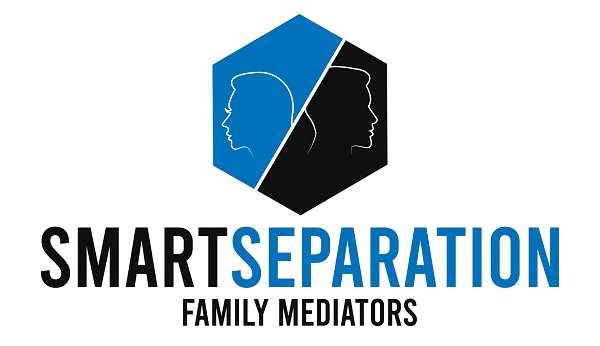Why Documentation Matters in Divorce Mediation?
When couples in Toronto, Ontario, choose divorce mediation, the process depends heavily on full and honest financial and personal disclosure. Proper documentation ensures that both parties have a clear picture of their shared responsibilities and assets, which is essential under Ontario family law. Without accurate records, mediators cannot guide discussions effectively, and agreements may be challenged or even deemed unenforceable later in court.
Transparency is at the core of family mediation in Ontario. Spouses are expected to exchange complete financial information, including income, property, debts, and expenses.
For mediators in Toronto, documentation is not just a formality—it is the foundation of the process. When couples arrive prepared with well-organized records, it allows the mediator to focus on guiding constructive discussions rather than chasing missing information.
Personal Identification and Basic Information
Before starting divorce mediation in Ontario, couples are required to provide certain personal identification and records. These documents establish identity, confirm marital status, and provide details relevant to children, if applicable. Having these ready ensures that mediators and both spouses can move forward without unnecessary delays.
Government-issued identification is essential for verifying each spouse’s identity. This may include a driver’s licence, passport, or Ontario health card. Mediators in Toronto typically request at least one valid form of ID to confirm the parties involved in the mediation.
A marriage certificate or record of marriage is another key document, as it proves the legal status of the relationship. If couples do not have the original certificate, they can request a copy from ServiceOntario.
For separated spouses, proof of the separation date is often helpful. This may be established through written communication, such as a separation agreement, a signed letter, or even evidence of one spouse moving out of the matrimonial home. The separation date is important because it affects property division and support calculations under Ontario law.
In Toronto mediations, having these records on hand demonstrates preparedness and helps the mediator focus on finding solutions that serve the children’s best interests.
Financial Disclosure Requirements in Ontario
One of the most important steps in divorce mediation is full financial disclosure. In Ontario, both spouses are legally required to exchange complete and accurate financial information before reaching any agreement. This ensures fairness and prevents disputes from arising later if one party claims that key details were withheld.
Income documentation is typically the starting point. Each spouse must provide recent pay stubs, T4 slips, complete income tax returns, and Canada Revenue Agency Notices of Assessment.
Bank statements and investment account statements must also be shared. Full disclosure helps determine the value of family property as of the separation date.
Details of pensions, RRSPs, and other retirement savings are equally important. In Ontario, retirement accounts may be considered part of net family property and subject to division. Providing up-to-date statements ensures that these assets are valued accurately during mediation.
For those who are self-employed or own a business in Toronto, business ownership records are required.
Property and Asset Records
In Ontario divorce mediation, clear documentation of property and assets is essential for determining net family property and reaching a fair division of assets. Mediators in Toronto rely on accurate records to ensure that both spouses have a full picture of what they own and what liabilities are tied to those assets.
The most significant asset for many couples is the matrimonial home or shared residence. Title documents confirm ownership, while mortgage statements, property tax bills, and utility records provide details about ongoing financial obligations. Since the matrimonial home has special protections under Ontario’s Family Law Act, these records are especially important in mediation.
Other property such as vehicles must also be disclosed. Vehicle ownership and loan details, including financing agreements or lease contracts, help mediators assess both the value and outstanding debt tied to these assets.
Couples should also provide documentation of other valuable assets. Toronto mediators often remind couples that even items with sentimental value should be listed, as complete disclosure helps avoid future disputes.
Debts and Liabilities
Just as important as documenting assets, spouses in Ontario must also disclose all debts and liabilities during divorce mediation. In Toronto, mediators stress that a complete financial picture includes what each spouse owes, not just what they own. This ensures that any final agreement about property division or support obligations is fair and sustainable.
Credit card statements and personal loan agreements should be provided to show both current balances and ongoing payment obligations. Spouses should also share records of lines of credit, car loans, and student loans.
In some cases, couples may owe money directly to the government. Outstanding tax debts or CRA repayment agreements must also be disclosed, as failure to address these obligations during mediation can create serious legal and financial issues in the future.
Finally, mediators will distinguish between joint debts and individual debts. Under Ontario family law, both spouses are generally responsible for joint debts, while individual debts remain with the person who incurred them. However, the division of assets and debts is often negotiated together in mediation to ensure a balanced outcome.
Why Legal Review Is Still Essential?
Even when couples successfully work through mediation, having a Toronto divorce lawyer review the outcome remains an essential step. Mediation focuses on reaching practical solutions, but only a qualified lawyer can ensure those solutions are enforceable under Ontario law.
Another critical reason for legal review is to ensure that any agreements reached in mediation are legally binding. Mediators guide discussions but do not provide legal advice or draft binding contracts. Once terms are agreed upon, lawyers can formalize them into a separation agreement or consent order that complies with Ontario’s Family Law Act.
Legal review also provides protection for each spouse’s rights and future interests. Without professional oversight, a spouse may unknowingly waive entitlements to property, pensions, or support.
Before signing any mediated agreement, it is strongly recommended to consult a family lawyer in Toronto.
As an experienced family and divorce mediator in Toronto, I often write blogs to provide insights, tips, and resources on family mediation and divorce in Ontario. Follow my blog to stay informed and empowered during challenging times.



